Create a Dedicated User for Corgea (Optional)
While not required, we recommend creating a dedicated Bitbucket user account for Corgea integration. This helps distinguish Corgea’s automated actions from your personal account activity and provides better auditability.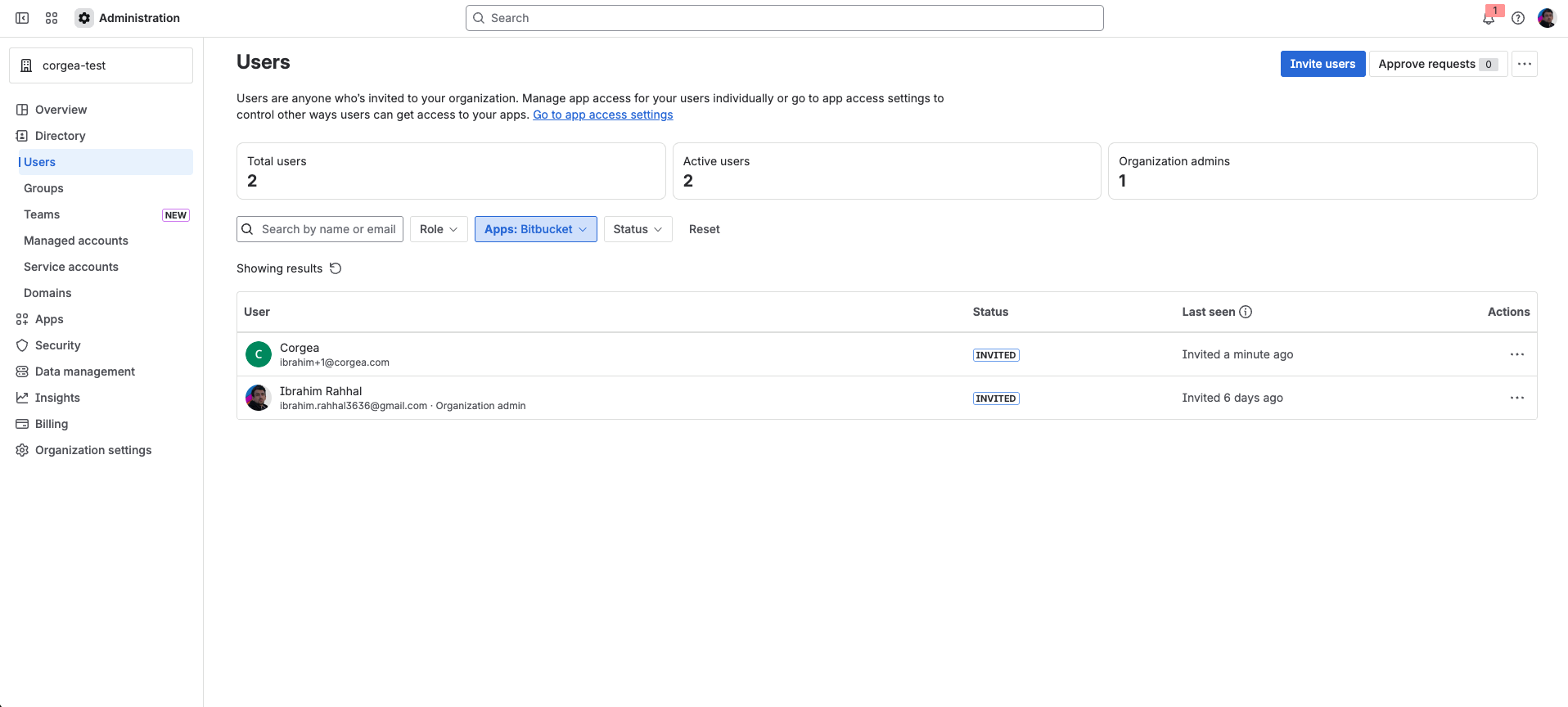

Generate an API Access Token
Navigate to the Atlassian API Tokens page and click “Create API token with scopes” to begin.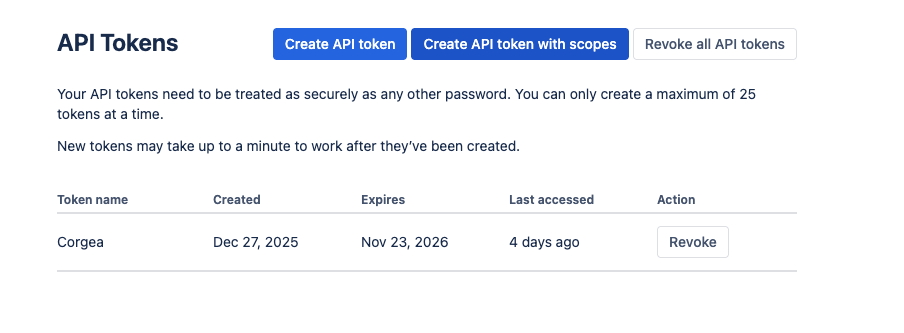
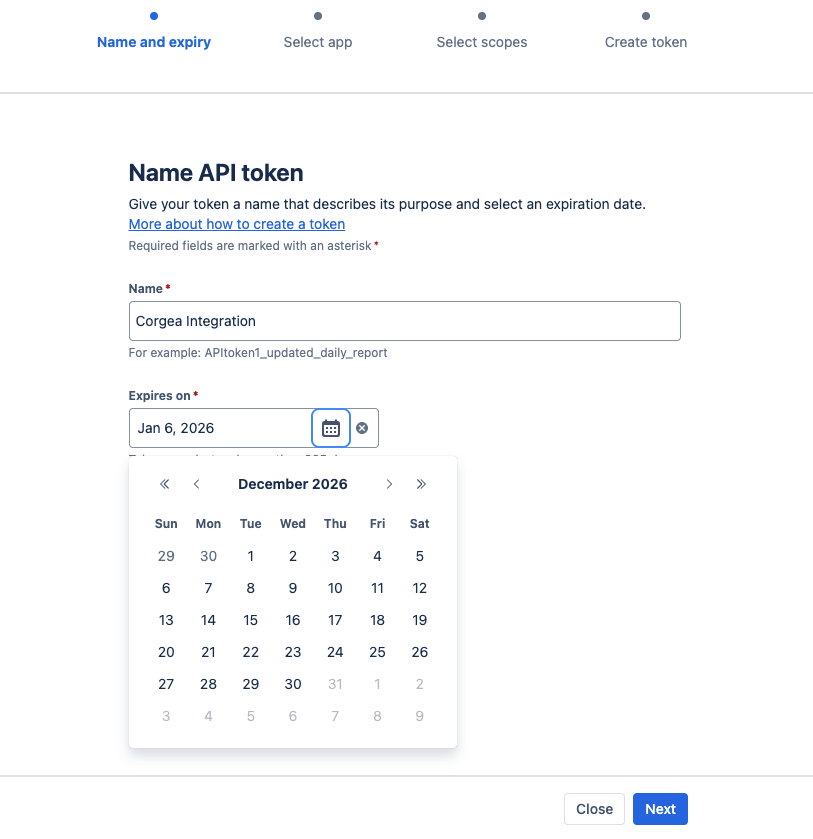
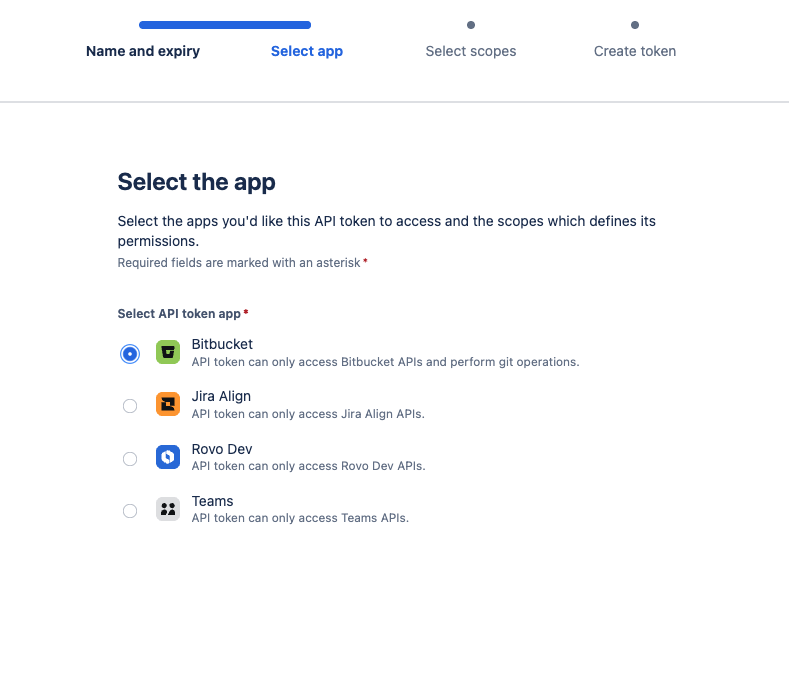
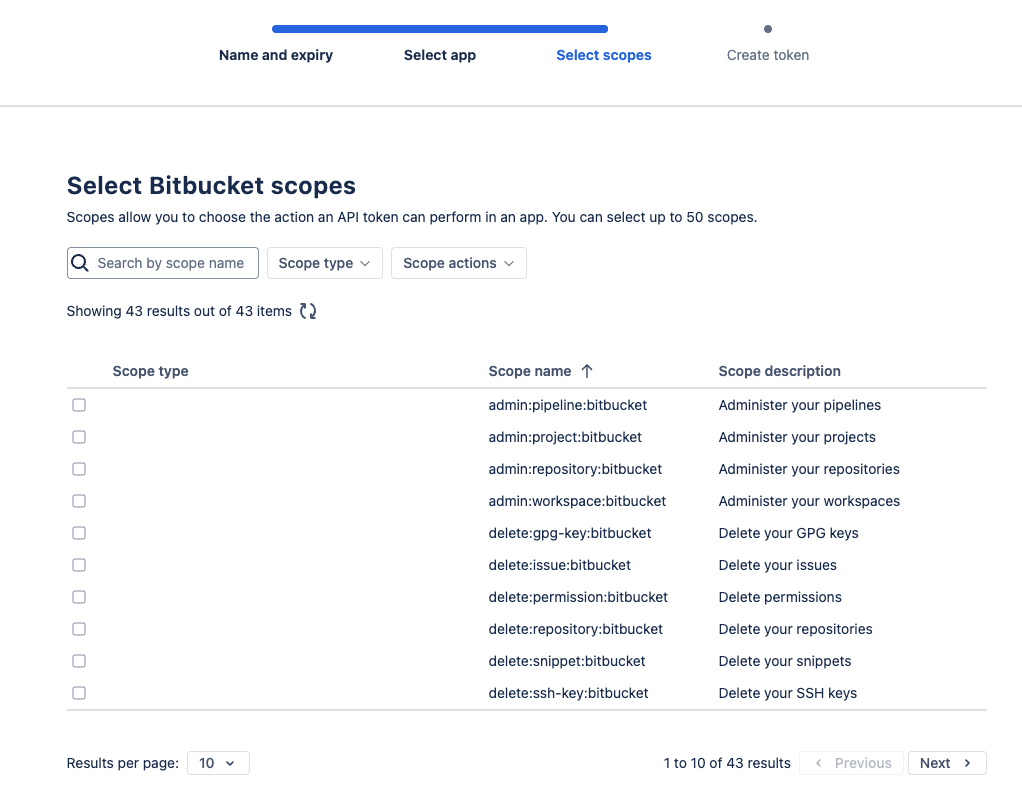
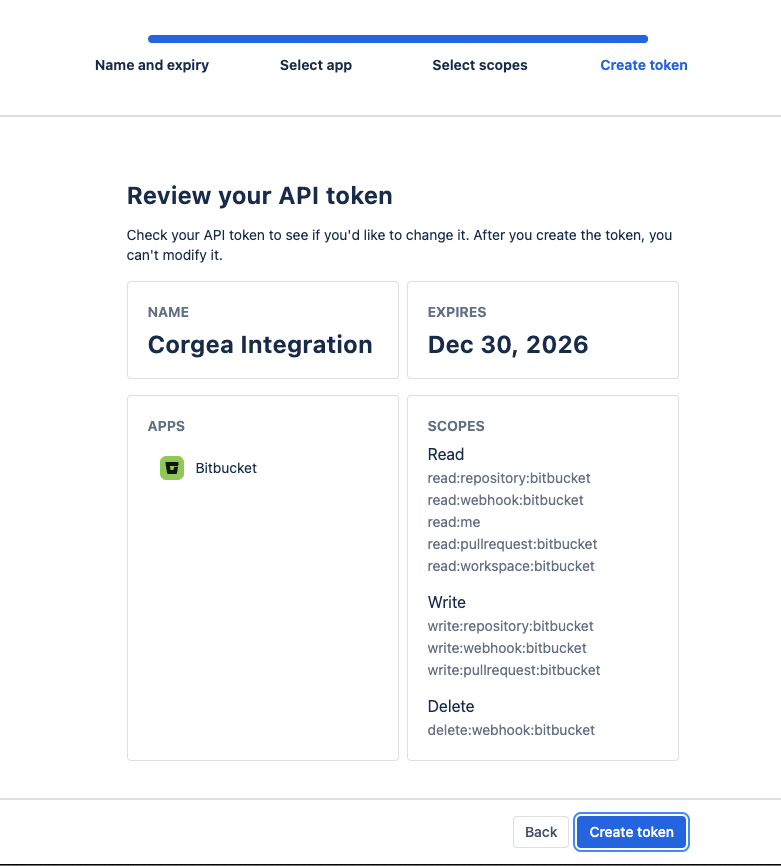
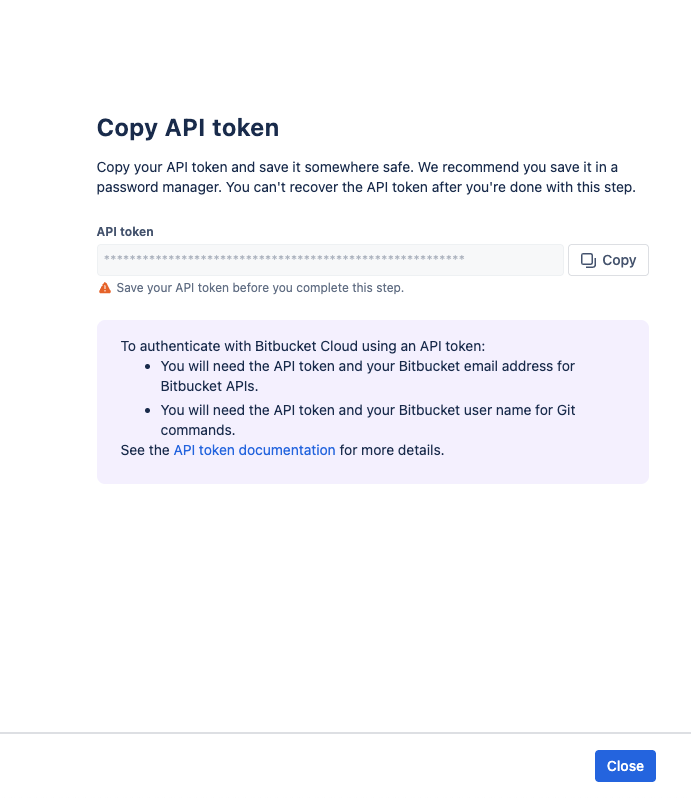



Repositories: “read:repository:bitbucket”, “write:repository:bitbucket”Pull requests: “read:pullrequest:bitbucket”, “write:pullrequest:bitbucket”Webhooks: “read:webhook:bitbucket”, “write:webhook:bitbucket”, “delete:webhook:bitbucket”General Info: “read:user:bitbucket”, “read:workspace:bitbucket”



Configure Bitbucket Integration in Corgea
Access your Corgea dashboard at 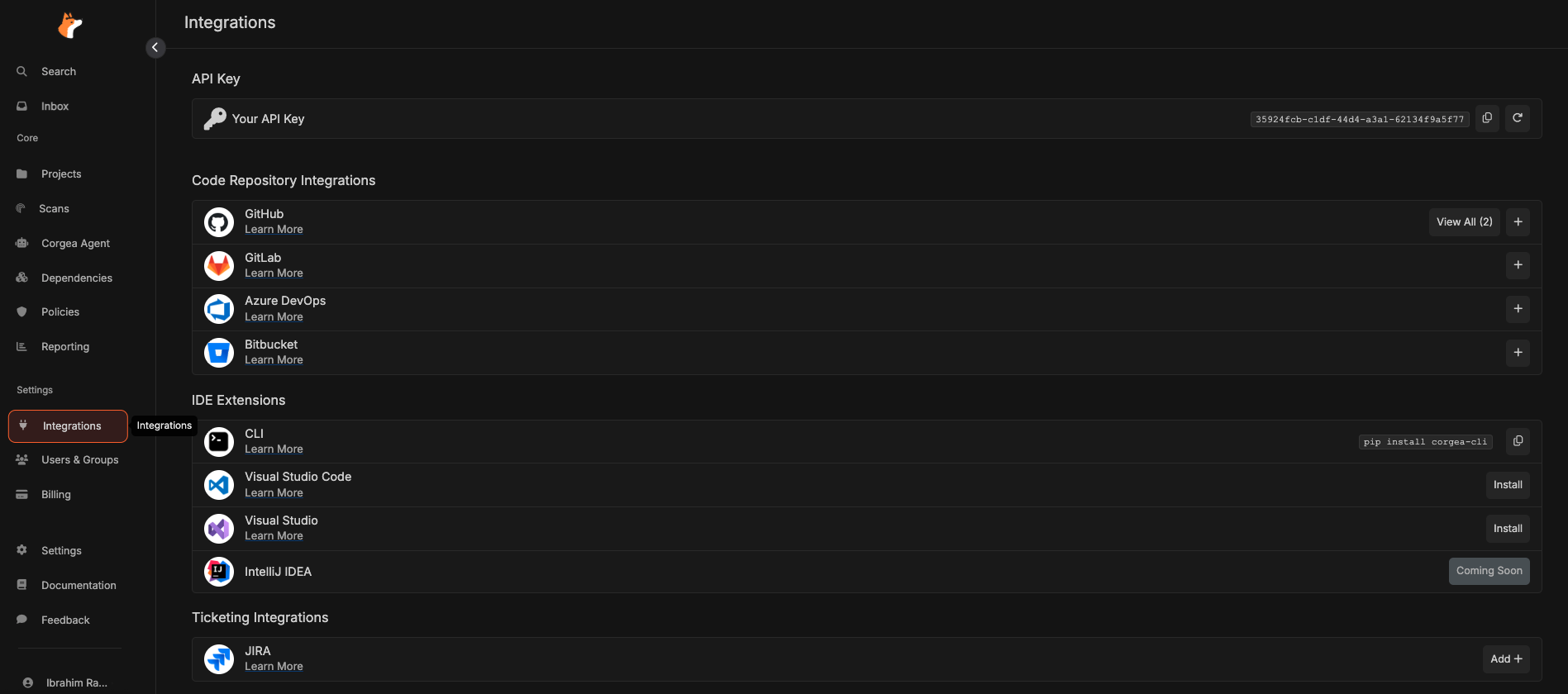

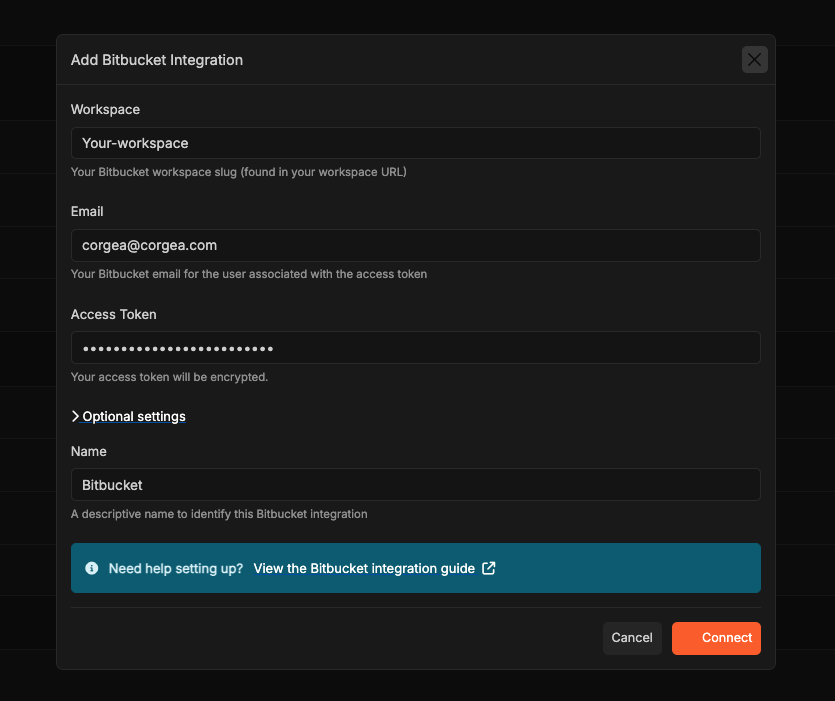
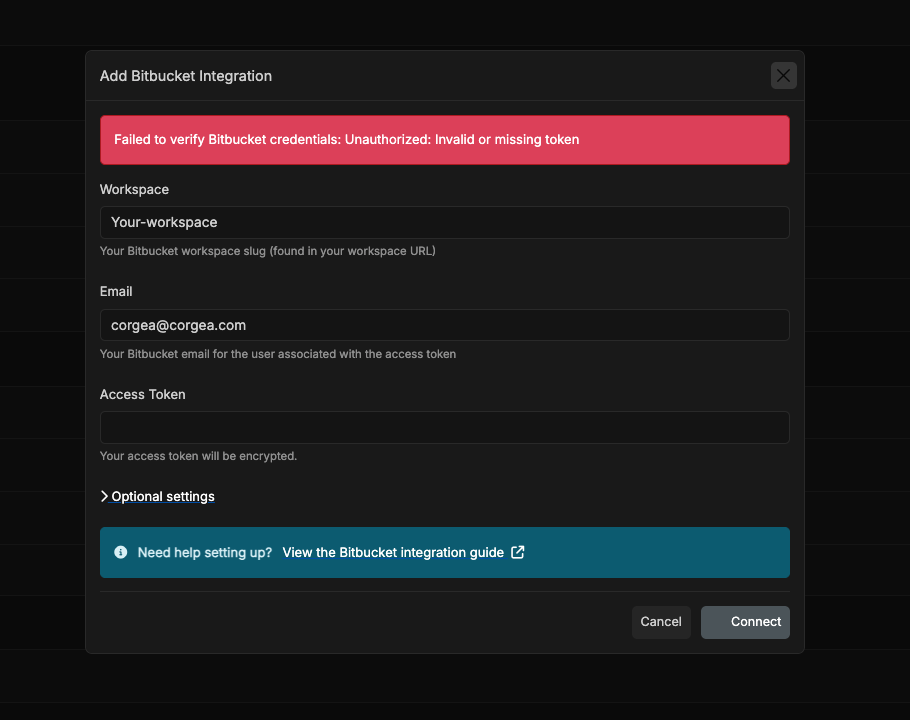
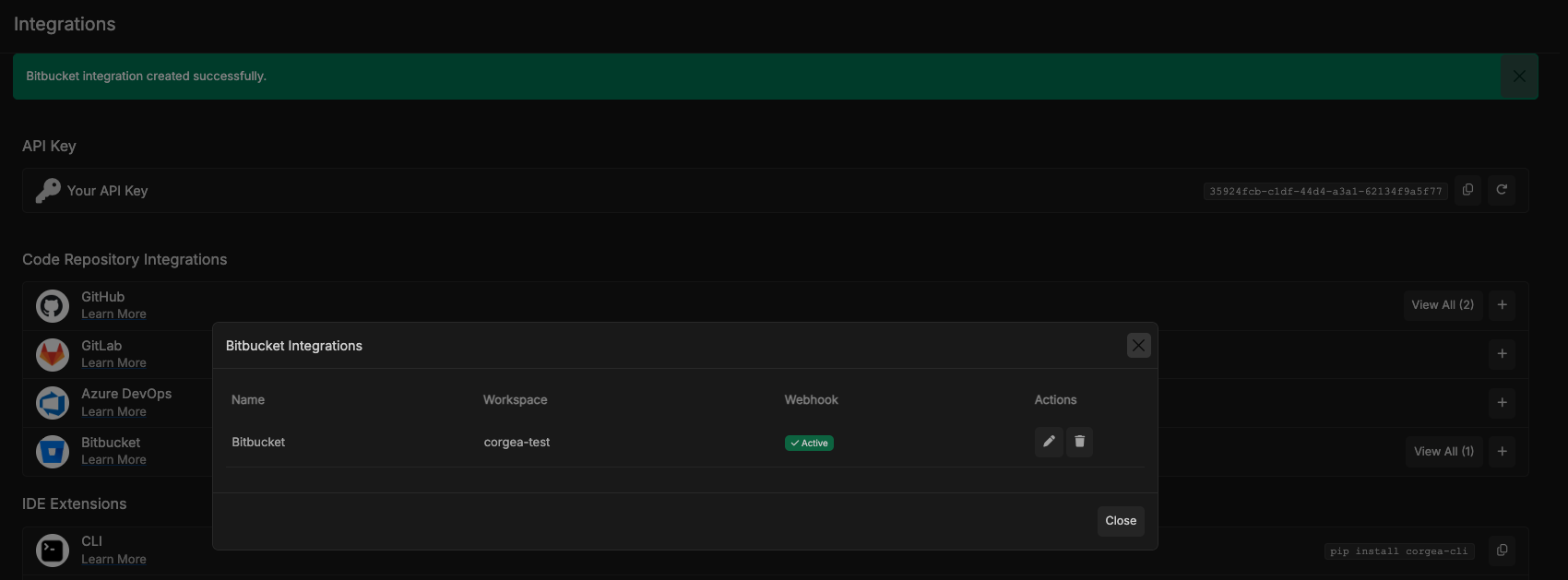
corgea.app or {your-instance}.corgea.app and navigate to the Integrations page using the sidebar or integrations link.

- Workspace slug: Your Bitbucket workspace identifier
- Email address: The email associated with the Bitbucket account used to generate the API token
- Access token: The API token you copied in the previous step
- Integration name (optional): A custom name to identify this integration if you manage multiple Bitbucket workspaces



